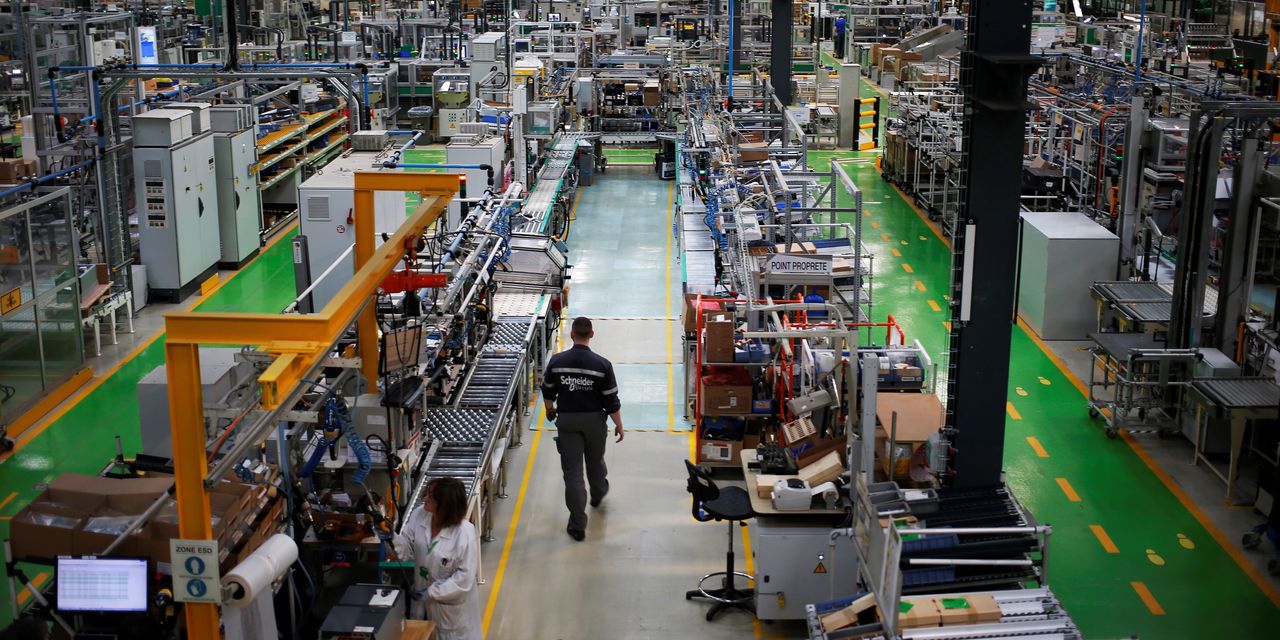Forget building a big coal plant and earning a regulated profit while cutting out to play golf in the afternoon. Running a utility business is getting more difficult.
And change is happening at an accelerating rate. It is creating more work for utility executives and opportunities for investors.
It’s getting harder to be a utility CEO “primarily because of EVs,” says AutoGrid CEO Ruben Llanes. “Also this push to the electrification of everything to reduce [carbon dioxide] emissions.”
It’s
Tesla
‘s (ticker: TSLA) fault, in a sense, in that the company has been a leader in the shift toward electric vehicles and renewable power. The company pioneered mass-market EVs, which will require a lot of electricity to charge when they represent a significant portion of cars on U.S. roads. And CEO Elon Musk calls EVs, renewable power generation, and battery storage three pillars of a sustainable, no-carbon, economy.
The point is that power generation is no longer only in the hands of traditional utilities. A
Walmart
(ticker: WMT) with a solar roof, a Tesla owner with a backup battery, or a homeowner with a
Generac
(GRNC) standby generator are all potential producers.
Organizing the flow of all that electricity is a monumental task. “It isn’t about putting in poles and wires,” says Llanes. “Optimization and efficiency are very important.”
That is where his company, which was purchased by electrical hardware and software giant
Schneider Electric
(tickers: SU. France, SGBSY) in 2022, excels. The 13-year old start-up provides software to utilities and others that manage the growing complexity of the grid.
AutoGrid sells software for DROMS, DERMS, and VPPs—three products whose acronyms highlight the complexity of the power business.
DROMS is short for demand response optimization and management systems. Some of those systems can change the thermostats in houses to manage electricity demand when the grid is under strain. The more sophisticated systems include demand forecasts and logic to precool homes so there is no spike in demand following a weather event.
DERMS is short for distributed energy resource management systems. That software orchestrates assets out in the marketplace that might not be part of the traditional utility network.
And VPP is short for virtual power plant. A VPP replaces traditional power generation with distributed generating assets. Schneider’s AutoGrid, for example, will aggregate megawatts of generating assets—the power from solar panels on top of a
Walmart,
for example—and will sell those megawatts to a utility.
One thing that a utility can do with a large enough VPP is replace peak generating capacity, often a fossil fuel-based power plant that is costly to operate.
Schneider is a player in this because thousands of their building management systems are in use. Schneider gear is in four of every 10 homes in the U.S., although homeowners might not realize it. Think of the breaker boxes in your basement.
The company is also involved because the opportunity is big. Bloomberg BNEF estimates that by 2040 there will be 1 terawatt of flexible capacity. That translates into a global business with about $100 billion in annual sales, from DROMS, DERMS, and VPP, says Llanes.
A terawatt is a lot. There are roughly 7 to 8 terawatts of global electricity generating capacity today. More than half is still fossil-fuel based. Solar accounts for about 5%.
Some of the growing opportunity has shown up in Schneider stock already. Shares are up more than 100%, cumulatively, over the past five years. The
S&P 500
is up about 55% over the same span.
Write to Al Root at [email protected]
Read the full article here


